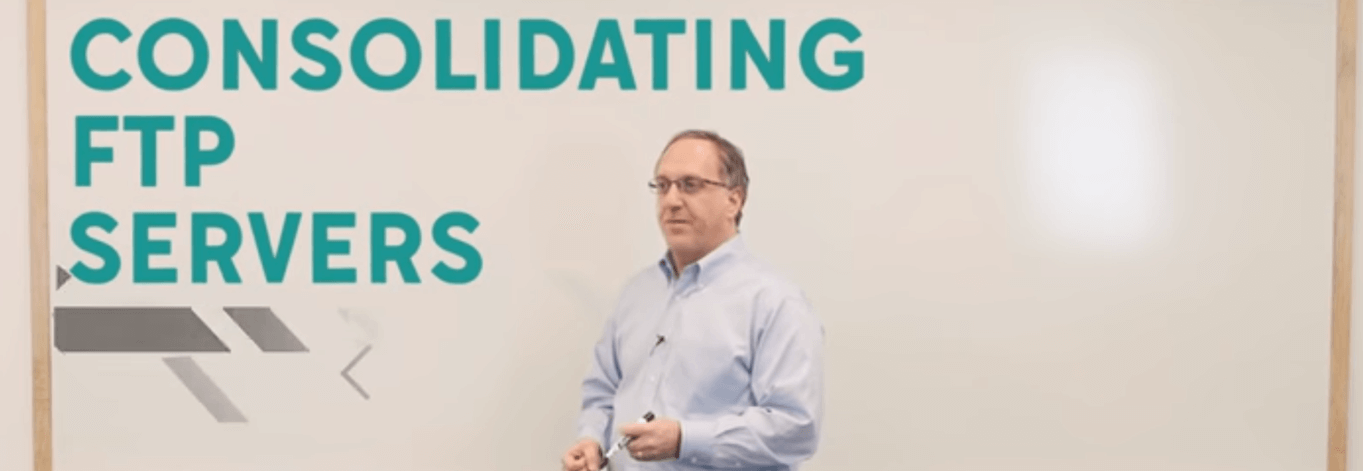Learn why companies in the health care, banking, financial service and insurance industries are consolidating FTP servers for security reasons.
Transcript
Rich Allen: Companies need to be concerned with the constant onslaught of cyber security attacks from your Mom and Pop tow truck shop all the way to Fortune 50s. In fact, most of the most talented people in the industry are hackers, that's
the bad news, and then the rest of us are trying to defeat them.
Steven King: Every business and every organization has files that they need to transfer internally as well as externally. And what you wanna do is you
wanna make sure not only those files are secure from prying eyes, but make sure it is sent and received by the intended recipients.
So when we talk about overall security posture, a prime example of something like that is an organization
has and needs. So what do they do, they put up an FTP server. And then they find they have some other need or other requirement, they put up another FTP server. Over a period of time, they've come up and they have five FTP servers.
Since they've put them up at different times, they might have had different needs or requirements, and they have people with different skill sets. So this might be Windows, this one might be Linux. So you have different technologies running FTP
servers. And then, people writing the different types of scripts might use different languages to write them as well. So maybe Windows, maybe somebody wrote a script in VB. Maybe on this one, they wrote in on PowerShell. Maybe somebody wrote this
on Python.
So you have all these different languages out there, you have to maintain all of these different scripts. I also have to maintain the operating systems associated with these. So what if you find out that on this Windows,
you know, I missed a couple of patch Tuesdays? And what if you find I'm using an older kernel of Linux here versus here versus here?
All this stuff consumes a lot of time, energy, and resources. And then on top of it, you have this
huge attack vector of people trying to get in through these five different FTP servers. Versus
if you have a solution such as MOVEit, you have everything consolidated into one, you have something
that's easy to maintain, and you've taken your attack vectors from five down to a single attack vector, as people are always trying to hack into your environment. But now you have one system for all the maintenance, management, and movement of all
of your files across your organization.
Kevin Conklin: One of the common solutions that MOVEit is used for is when people are in exactly that mode where they have five different FTP servers handling all these different
processes, a lot of manual effort, a lot of separate communications, a lot of ad hoc sending, and every time you do that, you're at risk. So we can consolidate all that into one system.
Vince Pierri: MOVEit will encrypt
at 256 AES bit encryption. Basically, that means it would take almost a billion years to unencrypt this data. So this is the highest level of encryption that's available out there.
Rich: So that's the level of security
that companies in the health care industry, the banking, financial service and
insurance industries, and many other industries are looking for. That's why they turn to MOVEit as their primary method for automating the transfer of files, try to do the scripting within it, but can still access PowerShell and other tools on an
as-needed basis.


